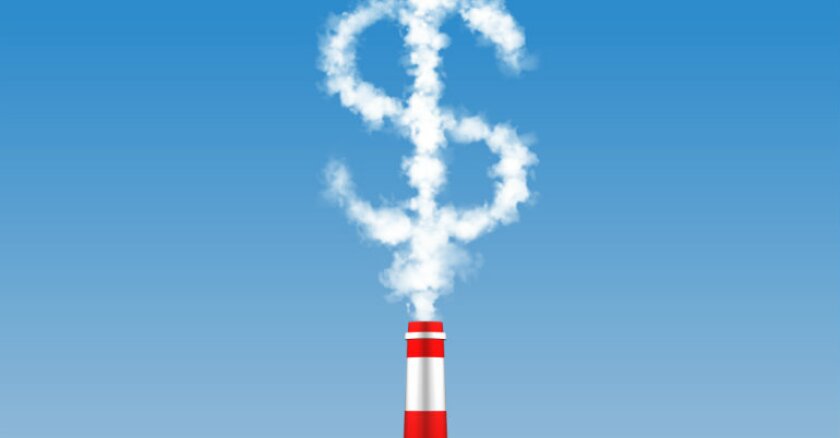Environmentalists in Washington state have tried for years to impose a tax on carbon dioxide pollution as a way to slow climate change. But it appears they'll have to keep trying.
The state's voters on Tuesday appeared to have rejected Initiative 1631, which would have implemented the nation's first carbon tax. It's the second time in two years a similar issue has fallen flat at the ballot box, and efforts to get a measure through the legislature have stalled as well.
Oil companies worked hard to defeat the ballot measure, including spending a record $26 million on the opposition campaign. Proponents, meanwhile, raised just $12 million.
Fifty-six percent of Washington voters opposed the ballot measure, while 44 percent supported it.
Unlike previous attempts to impose a carbon tax, this year’s effort was supported by a wide range of environmental groups, including the Nature Conservancy, Sierra Club, Audobon Society and Earthjustice. Several unions, the American Lung Association, Planned Parenthood, Native American tribes, Microsoft, REI and Expedia were also on board.
One of the state’s most famous residents, Bill Gates, was one of the campaign’s best-recognized supporters. "Going first is never easy," Gates wrote, "but Washington has a history of pioneering new ideas. And because of all the benefits -- shoring up nuclear and hydropower, enhancing the state’s role as a leader in innovation, and most of all accelerating progress on climate-change solutions -- I believe it will be worth it."
If the proposal had passed, the state would have charged polluters a fee of $15 per metric ton of carbon dioxide emissions they produce, starting in 2020. Those fees would have increased by $2 a ton every year until the state met its pollution reduction goals. Under a 2008 law, the state has set a goal of reducing its emissions to 80 percent below 1990 levels by 2050.
A new board, made up of political appointees, would have decided exactly how the new money was spent. But 70 percent would have been earmarked for air quality initiatives, such as improving mass transit, installing fueling stations for electric vehicles and increasing energy efficiency of buildings. A quarter of the money would have gone to water-related projects, and the remaining 5 percent would have helped communities cope with forest fires, rising sea levels and other effects of climate change.
Proponents of the measure stressed the long-term effects of carbon dioxide pollution on the climate. "If we don’t act now, the threat of pollution will only get worse and cause more harm to our communities and our kids’ health," the Yes on I-I631 campaign's website stated.
Opponents of the measure, on the other hand, pointed out several shortcomings they saw in how the measure would actually work. For starters, the proposal would have exempted some of the state’s largest polluters, such as Boeing, paper mills and even a coal-fired power plant from the taxes. Furthermore, said Dana Bieber, a spokeswoman for the No on 1631 Coalition, "There is no specified spending plan. We don’t know what we’d get for $30 billion over 15 years."
The carbon tax would have increased costs for consumers. The state had estimated that the price of gasoline would increase by 14 cents a gallon in the first year, and other products made or transported in the state would go up as well. All told, customers and businesses would have paid $2.3 billion for the new fees in the first five years.
Environmental groups and Gov. Jay Inslee, a Democrat, have been trying for several years to implement a carbon tax or fee.
Republicans controlled the state Senate when Inslee took office in 2013, so the governor sought an administrative fix when he rolled out a clean air rule that would have included emission fees for large polluters. A judge struck the rule down late last year.
In 2016, Washington voters rejected a ballot measure that also would have imposed a carbon tax. It faced a steep climb from the beginning because some environmentalists opposed it. The main dispute wasn’t over the carbon tax itself but what to do with the revenue. The ballot measure would have used much of the revenue to pay for tax cuts and tax breaks for companies hard-hit by the carbon tax.
When Democrats took control of the legislature last year, it looked like the governor might have had an opening to pass a carbon tax. But Inslee admitted defeat earlier this year, saying the idea was just a handful of votes short from passage.
Want state and local results? Sign up for our free post-election webinar.









